Text
Velcro, Not Superglue
Friends, fiends, and everyone in-between! This campaign has bestowed many lessons, but foremost among them is this: the further ahead you write the story, the further afield you will drift from the players’ course.

Ugrush does not begrudge this facet of tabletop roleplay – the impulses of the players are as essential to the emergent story as the dice are to unexpected gameplay outcomes. If you constrain them, you risk confirming what Schrödinger could only could only imply: the cat was always going to kick the bucket. Although I am new to the pastime, my understanding is that early DnD embraced this chaos by keeping the plot simple, and letting the player’s own action and imagination do the bulk of the work creating small stories of labyrinthine dungeon dives and perilous combat.

Ugrush Senior has described the game thus, and was surprised to hear how the game has evolved to have so much *plot* in the modern era. I’m sure many players still enjoy this ‘get on with it’ approach, and you can find them over there in the pathfinder corner.

But who are we kidding – we all want to be Matt Mercer or Brennan Lee Mulligan now. Not only has the bar been set high; we have already had several cycles of hype, backlash, counter-culture, and homecoming for the more involved narrative-driven campaign. Ugrush will not lie, the young theater kid in me simply could not resist. And yet, these stories we revere can seem *so* plot-driven that it can be a concern whether players have much agency at all. So then, the challenge is clear: Compose a driving story with interesting characters, but not force the players to simply improvise lines inside your little one-room stage play. Ugrush can only speak for himself: Voltaire has a Bad Guy, several really, and several mysteries to solve. It has characters with motivations and intentions (and also silly voices.) It has consequences that echo across the various plot threads. What it doesn’t have is a singular path to completion.

If it sounds like Ugrush is boasting, it is important to clarify: Ugrush really tried to keep the players on the trail of Voltaire’s most fleshed-out stories, often with enticement rather than hardened walls…but it made no difference. Player characters are not soldiers with orders to follow, nor are they heroes with unshakeable moral drives. They are cats, and you attempt to herd them at your peril.
Once this became obvious, the clear, straight outlines of individual plots had to change. It had to become flexible. It had to reconfigure at the whims of the real chaos agents of Voltaire – the dreaded player party known, after a time, as Team Backdoor. Many metaphors are available for the kind of writing philosophy required to square this authorial circle. ‘Laying tracks ahead of the moving train’ certainly conveys the sense of peril. Ugrush thinks you should not panic. The story needs structure, and flexibility. A puzzle piece can only fit one way, but a collage has no defined shape until it is done. The story should be held together with Velcro, not superglue. Ugrush will return with news of Voltaire’s final day!

2 notes
·
View notes
Text
A Merchant, a Pirate, and a Librarian Walk into a Bar: Session 1 (part 2)
I suppose at this point I should stop being so coy about the story unfolding - while I don't intend to chronicle everything, I don't want to make it seem like I'm just here to talk about myself.
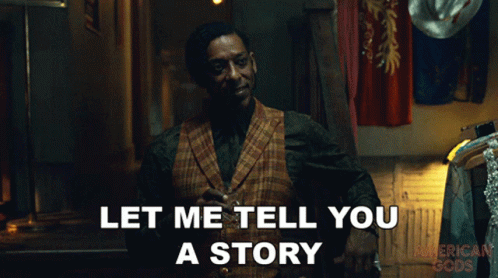
The players arrive individually in Voltaire, a trade hub and haven for inventors and entertainers, each with their own purpose. I designed the campaign with several small stories linked together to paint a picture of the history of the city, and ultimately to give them a reason to transform it, should they choose.
But first, they'll need to understand the kind of place that it is - a sort of medieval Vegas, bright on the outside and full of shady characters and a dark past. Guard shakedowns and talkative inventors are just the start, but that first bit of conflict gets them all in the same space.
So, we've got a party now - one mysterious former-servant Drow by the name of Alencia (Way of Mercy Monk), A merchant traveler seeking fame and fortune called Clifford (Arcane Artificer), and a Tiefling pirate with a heart of…gold? bronze? named Talisman (Rogue Swashbuckler).
Getting them together was a bit messy, but it gave them an excuse to meet Barnabus Bride the inventor and immediately adopt him. This will be a running theme for this party and the NPCs. His character immediately balloons into a source of plot hooks and conflicts, because we are officially off-script. Lucky for me, and to my complete confusion, the players move methodically through the entire square - meeting blacksmiths and guards and politicians and getting a feel for what's here. What they learn quickly is that all roads lead to Urgush the Merciful, the mayor of the city.

By now, Clifford has taken charge of the itinerary, and already has a bone to pick with the mayor over being taken for a ride by his guards. They meet the mayor together, and Clifford in particular is completely charmed by the man - assurances are made, intentions laid out, agreements come to, all without a single insight check or investigation.
This is DnD, after all - What would be the point of lying to the players if the dice won't let me get away with it?
Again, it's the one thing I don't expect - I prepped a game where the party could come in loaded with suspicion and itching to start trouble...and instead it's practically a diplomatic mission with the most easygoing (and gullible) PCs ever!
The immediate consequence of this meeting is that the guards are 'fired' and the players are off to celebrate with a drink…making them vulnerable to an ambush by the newly-fired guards themselves, and I get to say what I've been dying to say since we first set on….

As an aside, so far 5th edition has been allowing me to play to my strengths - character improvisation, exploration & discovery, investigation & intrigue - all of these have pretty loose rules to make room for individual style and intention.
That freedom goes out the window when combat is initiated.
This is not a criticism - the rules are there to place constraints on the players and reward their decisions with interesting consequences, but it is also by far the hardest part to learn as a new DM. I was determined to get a little piece of the whole experience in the first session, so I made sure to have a few encounters prepped. I used Kobold Plus Fight Club to balance out the combat as best I could, and we used Loke Battlemap books and all the appropriate miniatures to get the full show. (Sorry, no pictures of this one)
The tactile part of this was completely new to me - I joined this player group well into a roleplay-focused long game that only rarely features maps-and-minis. It's an expensive investment, and takes up time and space groups don't always have. Our main DM, playing Clifford in this game, hand-builds maps and props for special events and it's a labor of love.
I prefer to buy my way to happiness.

Speaking of Clifford, it shouldn't be forgotten that part of the purpose of this game, besides my own desire to try it all out, was to give him a break after years of DM'ing for us and let him reset. I'm happy to report success on that front:
Now we switch modes into more adversarial play. I've got stat sheets and rules tabbed in the book, and my DM screen has some basic reminders, but it's all a lot to keep track of. Again I deeply appreciate my players for not getting fed up during a rule check or a correction midstream... probably because this is new for them too: New PCs going into combat is a learning experience for them as well. Everyone started at level 3 - part of my ill-fated attempt to keep the Voltaire campaign short - and this gives them a possible subclass to specialize into, with a whole host of perks and features to get to know.
We're all in this together, is what I'm saying.
Plenty went wrong on both ends of this encounter - the players were still adjusting to their level3 PC selves, with all the squishiness and limited arsenals that entails, and I was shocked at how many obvious, important rules are kind of...murky. Stealth attacks? Off-hand strikes? Potions? Flanking? Thrown Weapons? It all came up with such speed - just because the encounter design was simple, didn't make it simple to run.
The PCs didn't have it any better, Talisman dropped to 0HP with frightening speed, and early rolls were giving the bad guys the upper hand. Tensions rose as players scrambled to protect one another and identify main threats - but this process is team-building, and desperate players try interesting things to gain the upper hand...so long as you allow it.
So here's the next tip: Know your PCs abilities, because they might not. Players want to do cool shit, but you're the one who has to decide whether it works. I stuck to the rules as written as far as I could for this game; I knew I had enough on my plate without making my own ruleset!
(this is foreshadowing)
Luckily for all involved, the fight had an exciting cadence and allowed our session to end dramatically - Did Ugrush send those men? Are the players already under suspicion? Has anyone we've met been truly honest?
And just to hammer the point home, we closed on the sound of an explosion outside, near Barnabus's tent...

I spent the next two weeks fending off theories and carefully considering how much pain I wanted to inflict after that little cliffhanger....
because I'm drunk with power.
I couldn't be happier with our first session. It helps to be surrounded by friends who want you to succeed, and that's the last advice for new DMs today: Play with people you trust for your first game. If your table is a comfortable place to be, you'll be empowered to try new things without fear.

Stay tuned for session 2, where I learn that, yes, you should re-check your notes before continuing on!
5 notes
·
View notes
Text
The Deep End: Session 1 (part 1)
Where to even begin?
Every DM gets the same warning when learning to run a game: your players won't do what you expect them to do.
We nod politely, trying to accept the obvious advice in the spirit its been given, all the while thinking: Ah, but I know these players. Forewarned is forearmed, I can direct and even predict their paths! I alone can outmaneuver the DM's curse!
Needless to say, you can't predict the unpredictable. But I'm getting ahead of myself, because actually...

By any objective metric, our first session went amazing! The final hours of preparation stretched well into the morning-of, leaving me with about 4 hours of actual sleep. Mrs. Ugrush lifted mountains to make the place ready for the adventuring party, and everyone arrived annoyingly on-time, which meant I ran out of excuses to delay our start time and could only barrel through the stage fright.
Oh, did I forget to mention the stage fright? Because it's monstrous. I've always had it; no matter how many middle-school plays, and high-school theater clubs, and college classes, the last 10 minutes before the curtain rises are utterly brutal on me. I've learned to just sweat it out, grind my teeth, and push on...but every time I do, I know it will be back.
I think it comes from a good place, honestly. We want the audience - or the players - to have a good time. We want to be able to deliver lines and narrative with confidence, and bring people into the world. It's pressure! I can't pretend to like it, but I know I've done enough preparation when, a few minutes in, that pressure disappears - left behind by the momentum.
I knew to expect the stage fright. What I didn't expect was to completely disassociate for the first two minutes!

I know, that sounds alarming, but it's not as weird as it sounds. There's something about that tension before GO-TIME that just...propels the first couple of minutes. It's like jumping off a diving board and not remembering the moment between choosing to jump, and hitting the water.
Here's a snippet:
You have only my word, of course, but as my players can attest I did not remember most of this conversation and had to go back and listen to it just so I could re-create the character. It was surreal.
Which brings me to my first tip, I suppose: RECORD EVERYTHING. It's just so much easier than taking notes while DM'ing, or cribbing from a player later. Get everyone's permission first, of course, but odds are if you're having any fun at all, they'll want to re-listen too.
Eisenhower is credited with saying "[..] plans are useless, but planning is indispensable," and I couldn't agree more. Having planned out the history of the city, created major characters with their own histories, and laid out points of interest as well as plot hooks in several different forms, we had no problem keeping within the bounds of what I had prepared....which does not mean everything went as expected!
Some of it is my fault - a central theme in Voltaire is the fair, and I stocked that fair with interesting locations and characters. Out of an abundance of caution, I prepared more than I thought would be needed so that players would be free to explore. What I did not expect was that my players would want to see every. single. one. I had to stop dropping hints after a while because they couldn't help but chase them down, and it was diverting their progress on any one thread!
Having gone in with an expectation that holding their interest would be a challenge, I was shocked. Wait, they actually like this place? I'm not boring them?

I can only say thank you to my players for being so gracious - they're not obliged to take the worldbuilding seriously, but they were constantly up for it and that made it so much better for me. The physical props were a big hit too - everyone got a poster as a kind of party favor/quest hint, and the city map generated actual gasps:
That's one hell of a morale booster for a first time DM.
So I could hardly blame the players for playing in the sandbox; that's why its there! But I did make another kind of mistake, the newbie-watching-too-much-actual-play kind: I tried, very hard, to give each player their own introduction.
If your first thought is oh, that's so thoughtful! Let me tell you, it's not. Players by and large do not want to shoulder the narrative burden. So, tip number two: Playing and DM'ing are different modalities.
It went fine at first; part of one player introduction is up there with Fennegan's audio. Then, we tried to get too clever. I prompted one player in advance that he should expect some conflict, and that this conflict would give another player an opportunity to intervene: a kind of DnD meet-cute. I wanted something more interesting to explain their relationships than "we all met in a tavern".
In doing so, however, I ended up inadvertently leaving an essential bit of progress up to the player's instincts, without giving him all the info he would need to play along gracefully. The conflict in question was a pair of guards shaking down his fair display for protection money. I had the guards give him some attitude and the suggestion of a threat, fully expecting his response to be hostile in reply - or at least uncooperative.

Instead, Cliff (the character), decided that the smart move was to comply, and negotiate for more benefits for the transaction.
It was great! What unexpected roleplay! But do you know how hard it is to keep a couple of throwaway thugs acting angry when they're getting what they want? How can Tal (the Rogue waiting in the wings for her 'cue') come to your rescue when you no longer need saving?!
My bad.
It was the only real stumble of the night, because we had no choice but to just improvise a pre-existing relationship for them on the spot. Lesson learned - individual introductions are tricky. And yet, I couldn't be mad about it. Firstly, because I set them up for this mistake. And secondly, because the scene still needed someone to run the guards off, I was forced to amplify a background character into a leading role in a way I'd not even slightly anticipated.
And that's when I knew I really liked this game.
It's such a strange sensation to build the car, lay down the roads, and put up street signs for your story, and then put someone else in the driver's seat...but that's what DnD really is! It's cooperative storytelling, and improvisation (informed by your preparation) in service to progressing that story is obligatory.
(And also a lot of fun!)
1 note
·
View note
Text
Clichés aren't crutches, they're on-ramps.

The written history of Voltaire is as complete as I need it to be, now. The process has been clarifying - I have a better understanding now of what parts of the world I need to prepare in detail, and which I can improvise. Tempting as it would be to write detailed dialogue for every important NPC, it's neither necessary nor especially convenient to have more than an outline of a character's potential conversation with players. After all, how are you going to know what your players will say? Too much pre-written dialogue, I feel, risks setting me on a path to railroading the conversation, and turning it into a play where only one of us knows the lines.
So instead I've got very clear setting and character histories, but only general notes for what they may bring up in conversation - motivations, opinions, secrets. I'm trying to give myself the TOOLS to make for interesting interactions, rather than pre-planning them.
It's actually a super satisfying thing to do, compared to traditional writing!
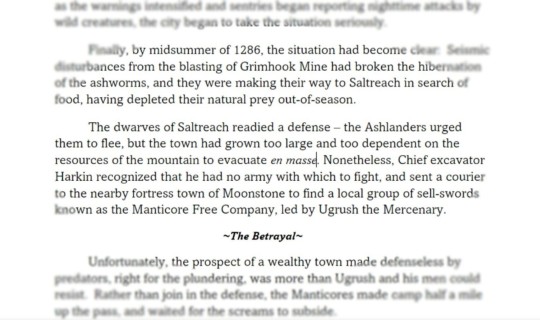
I was worried last post about player engagement, and having some idea of what they might do. The thing is, players WANT to move forward. Since the process is collaborative, I have to count on them to pick up signals, just as they are depending on me to give them those signals. We all want to be immersed, and have a way to embody characters in this fiction intuitively.
So sometimes, you need to do the obvious.

Clichés arent always bad. If EVERY interaction with the players is some rug-pull of surprise, they'll stop trusting the interactive process (or the narrator) and start treating every opportunity like the Chalice Test in The Last Crusade. Sometimes having a good time means recognizing that the players have expectations, and you should consider whether a given moment is better served undermining them, or meeting them.
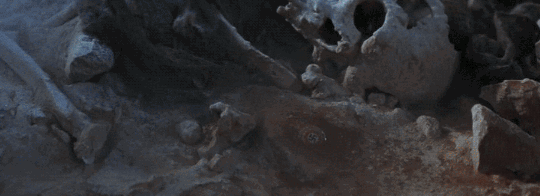
So I've got plenty of surprises in store for my players - mysteries to solve, characters with secrets, exotic situations - but connecting these things together is an environment that won't punish the player for leaning in to the fiction in a fun and obvious way.
In other news, the city is complete! I'm not sure I can adequately describe how deep the rabbit hole is when it comes to fantasy mapmaking - I was mere seconds away from hand-placing a dozen roads and hundreds of buildings, a complete 180 from the intuitiveness of the region map.
Well, it turns out that even among map nerds, that is not the ideal process. One of the most popular ways to get a head-start on city creation is a generator like this:
Again, it's another tool for taking the city-planning experience requirement out of the city-creating process. For those planning to use this route, you aren't stuck with whatever design it gives you either - there are squash-and-strech tools to enlarge areas or condense sections, lengthen walls or roads, etc. You can use the final results un-altered, or you can bring it into wonderdrafts as a transparency and use it as a grid for your own buildings.

...and after my third or so reset - and well into the morning - I elected to split the difference. I have a lot of admiration for the people that spend 100s of hours on a map, but it's not for me!
All the same, I'm proud of the results.
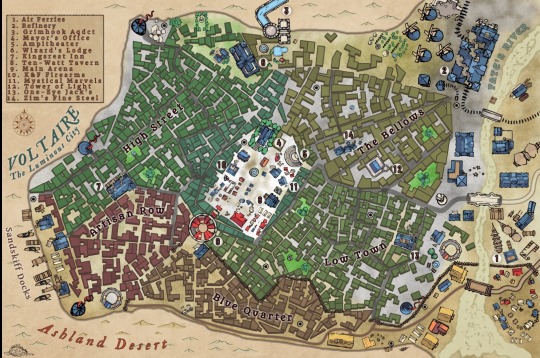
We have districts relevant to the plot, bespoke locations where anything interesting is likely to happen, and a road network that makes some amount of sense. It's not nearly so aesthetically pleasing or consistent as the region map, but it will serve our purposes nicely.
I'm also happy to reveal a little party favor that the players will receive at the start of the game. The whole idea of a short story set entirely within a city came out of pondering what a D&D 'Worlds Fair' would be like: what kind of stories that could generate? One of the earliest ideas was to gently nudge players in the direction of those attractions, and each tent would be an opportunity to tell a story or meet someone new.
To that end, the only introduction I gave players as motivation for their characters was "you've received this invitation, and have just arrived in Voltaire." From there, around 2/3rds of the story hooks are dangling right here:
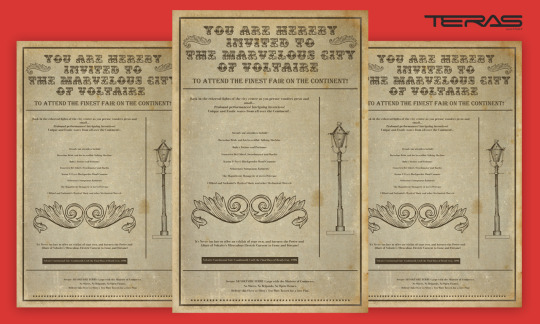
[Credit where it's due, this was a commission filled by Teras_one on Fiverr, and it was pretty painless.]
As I mentioned before, I'm sticking to generic tactical maps for fights - there just wasn't time! Even so, it's mega-crunch time. The work remaining might be the most challenging...

NERD MATH!
Building encounters with stat blocks and learning the rules for special situations is going to consume all the rest of my time. I'm building a comprehensive campaign Bible, but the most critical portion for Friday (AHHHHHHHH) is having a few encounters ready to go. Triaging these encounters is almost impossible - players can go anywhere - but I think I can separate some late-arrival quests at least. This will likely be my final pre-game post... I lost a lot of valuable writing time by getting sick over Easter weekend, and the work remaining is mechanical compared to world-building.
Not that it matters. In the spirit of "if its worth doing, its worth overdoing", I'm committed to two more nights of caffeine, research, and furious typing. I only hope it's enough!
0 notes
Text
Player Characters are the Real Villains

There's no turning back, now! I've sunk hours into maps and the history of the city, I've commissioned a flyer for the fictitious fair as a player gift, and around half of the invited players have given me detailed character backstories....
And whoo boy, is that last one quite the double-edged battleaxe. I can appreciate that my enthusiasm was infectious; that was the whole point of volunteering to run a small campaign from the beginning. Talented, generous DMs don't really get to be players as often as they'd like, and I was feeling frisky. Well, my pitch was too good and now I've got the fates of fully formed player characters in my underprepared hands. There's an expression when talking about learning a skill or process: "knowing just enough to be dangerous". I was so confident when starting this journey that I could out-prepare the player crew for whatever mischief they intend. Petty crime? No problem. Attack the villain on sight? I'm ready. Attempt to burn down the tavern? I already have a battlemap for that. I've played with these fellas for two years, what's left to learn?

Mostly that my friends have mischief to spare. One player got in early and I filled in the description of a pirate's den for them to hail from, just for flavor...and as soon as this was made public, another player also wanted to be a pirate - and hey, maybe an AIR pirate! So, as gently as I could without making demands of my players, I explained that, no, that wouldn't be a profitable career, as only one city even has airships, and they're basically glorified ferries to cross the mountains - and how would you even board one without guns?
Before long a debate is raging about the flammability of my (heretofore decorative) airships, and I realize I'm witnessing the formation of a player terrorism plot. They're not going to explore my city, they're going to raze it to the ground.
That I've since been assured that "he was probably kidding" is little comfort, because it uncovered the truth of my situation: I HAVE NO IDEA WHAT THEY'LL DO. Sure, if I can keep them intrigued and delighted, they'll chase down my leads and meet interesting people...but if I bore them? If nothing seems to keep their interest? Voltaire is going down.

Further complicating matters is my timeline. Just as I was finding the time to build characters and quest plots at work, I get assigned a trainee who requires constant monitoring. No more multitasking, it all has to wait until I get home. Even more distressing, the nature of building my own maps is that they have more lead time than characters or encounters, while also being less fundamentally important. So I've got a few more days at most to finish the decorative part of the game before chewing into the complexities of plot, character, and finally the rules.
Fear not for Ugrush, however; as the header image shows, I have not been idle. Indeed, I've been burning the candle at both ends, and tumblr is the *easy* night by comparison. Below you can see the region surrounding Voltaire, including the forbidding and mysterious Ashland desert.

This was done in Wonderdraft, a delightful program that helps separate the act of inventing a world vs. illustrating one. I've got ideas for days, but the sketching skills of a drunk meerkat. Wonderdraft relieves me of the burden of hand-eye coordination. Sadly, the city map will not be so simple, but I'm chipping away at that, too:

Something has to give in this process, unfortunately. The city map is essential, but I may find it necessary to automate sections of it. I've already decided to use some generic encounter/battle maps whenever possible. The scope of Voltaire is shrinking, as all creative endeavors must when confronted with the practicalities! We press on nonetheless. If the devil is in the details, I want him to be as devilish as possible.
2 notes
·
View notes
Text
The Shopping Pitfall

One thing I've learned while playing a homebrew DnD game with a bunch of broke, overworked adults is that you don't need to spend a lot of money to play Dungeons & Dragons. Sure, there are books and miniatures and props and maps, but almost every gameplay scenario can be directed by one's own imagination, as long as you've got a charismatic DM and a bit of scratch paper. We've navigated whole towns of NPCs and complex, trap-filled lairs with nothing more than question-and-answer and some used plastic army men.
Having said that, some basic provisions will make the game much easier to follow. For instance, at least one person in the group should get their hands on The Player's Handbook. Much of what you'll glean from it will end up on your character sheet or your notebook, but navigating the items, spells, and traits of character management is challenging without a hard copy. No need to buy more than one, pass it around! WOTC will never know you didn't buy one for every player! A rulebook of some sort will be required, whether it's an online, searchable DB, or a condensed rulebook from WOTC, or the full-fat Dungeon Master's Guide, a viewable copy of the rules will help the DM referee and lay down the law. I've been lucky to play with a group that does not, by and large, want to spend time splitting hairs or can-I-do-this-while-grappled and so on; even so I'll be keeping a rulebook close. Finally, it's pretty difficult to play without some dice, and while you *could* get by with a single set of polyhedrals, it's much more convenient for everyone to have their own. A DM is likely to need additional d6's, d8's, and d10's if he or she is going to efficiently roll for damage once the action starts.
You would think with this much experience, I would be immune to the allure of a DnD shopping spree. Alas, you would be mistaken, and already I've fallen into the trap of attempting to buy competency when I should be working on the salient details of my little universe.
Can you blame me, though? It's never been easier to buy!

You're only ever one click away from dozens of modules and expansions, hundreds of accessories and minis, and literally thousands of dice. Dice for days. Everyone's making dice, because everyone wants in on Dungeons & Dragons. Wallets beware; no matter your level of play or interest, online retailers have you covered. Want a custom notebook, complete with character sheet? A polymer dice jail to punish unlucky dice rolls? A fully-custom 3D-printed miniature? A coffee mug with your character's stats on the side? A giant bag of holding to store your literal thousand dice? There's something for everyone!

What can I say, I'm only human, and I actually love the physical props available these days. I have every intention of making an in-universe World's Fair advertising flyer for each player. We're going full tactile on this.
But like Sagan said, “If you wish to make an apple pie from scratch, you must first invent the universe”, and I haven't gotten there yet. My first real purchasing mistake was in trying to decide what kind of starter kit to spring for. Money is always tight in the Ugrush lair, so the cost difference of the "Essentials Kit" versus the "Starter Kit" blinded me to the pitfalls. I bought the former, and got a handy condensed rule book, a set of dice, a starter adventure module, and some pre-printed - and filled-in - character sheets for same. No blank sheets, no hex maps, no status markers, and only a digital code for a printable DM screen - the one physical item it seemed like every version of starter kit came with.
Whoops.
So I'm out $18, but I can take the hit. I seek out a screen, and get a bit more lucky with the "Wilderness Kit", which in addition to a 4-panel hardback screen, comes with some nice status cards and a lot of hex grid dry-erase panels for unscripted encounters.
Then my PCs start drafting characters for me to preview, and oh boy. Carl has spent so long as an NPC that he's fully committed to being a Fair participant / retailer as an Arcane Artificer. Does he care that it's a low magic setting where such magical artistry is likely to be frowned-upon in light of new-fangled technology? No, and that's fine and good for him etc. But shouldn't he care that it's not in my player's handbook and, so far as my knowledge base is concerned, may as well be a made-up class? Well If I told him that, he very well might, but I am gripped by cowardice and we soldier on. Nor can Leah, fresh off of playing the reluctant adult in a party of misfits, resist the siren call of the Swashbuckler - another expansion class.

This is how Wizards Of the Coast gets what they're owed. I'd be a bad DM for not knowing how these classes work, and a worse one for disallowing them for same! We're only starting at level 3, surely there are only so many tricks these crafty PCs can throw! But there's only one way to be sure.
One copy of Xanathar's Guide to Everything, please!
1 note
·
View note
Text
Now that we're all here...

I've been playing D&D with a very welcoming group of old and new friends for about two years now. At first I was merely the host while my wife and her guests played, but eventually it was too tempting and I dipped a toe in the water.
Which is all it takes, really - as long as the room isn't incredibly hostile to newbies, Dungeons & Dragons is great at getting people to roleplay. I think the draw for most tabletop RPGs is the combination of inviting, open-ended interaction, alongside well-defined constraints. Playing pretend is all well-and-good, but playing an RPG also means learning to express yourself within a set of rules, and overcoming obstacles together without knowing that victory is predetermined.
Or to put it another way, a good tabletop game has stakes.
I love that. So I was hooked more or less immediately. I've mostly played a 5e homebrew by our DM, Carl*. We've got 5 other players, including wife Leah* and my little brother Zack*. Most of us are in our early 30s, with day jobs and relationships at and away from the table. When I'm not playing a grumpy, nearly-agnostic Cleric, I run an SMT line at a small electronics manufacturer.
Carl, our current DM, has been on quite the hot streak: He's built an elaborate, dragon-riding power fantasy heavily influenced by Eragon, and it's given us ample opportunity to build detailed characters and explore different ideas about destiny, heroism, and duty.
Oh and sometimes we accidentally cause calamitous damage to the countryside or to invading armies.
It's not been the smoothest ride - some of the changes to 5e involved changing from spell slots to a mana pool, and ANYONE can cast a spell, so tweaking encounter balance has been a headache. The scale of the story also poses practical challenges, but Carl has embraced them and gave us all a wonderful helms-deep-like siege that took up an entire living room with dioramas, working catapults, and an invading army to clash with.
Which brings us back to me. Watching him work at this, and paying attention to the ways the story continues to mold around player action, has me excited to trade places for a spell. He's interested too, having been on one side of the screen for a couple of years now, and would welcome the opportunity to be 'just' a PC. Meanwhile I've found that I'm increasingly interested in post-game discussions about how his planning sessions were going, what he was excited to try next, etc. Carl has been very generous with his time and honest with his experiences, so I'm going to try and return some of that.
That said, he and I have very different interests in terms of what we like about D&D. I'm hoping to emphasize those differences in my own maps, quest hooks, and story scale. A vacation for him means homework for me.
*(names changed for reasons of privacy)
0 notes
Text
An Invitation
I'm not accustomed to creating things.
That's not to say I lack all creativity; I've done some community theater, I enjoy solving puzzles and riddles, and like any English major I've got a small collection of half-finished stories. But ask me to just create something unique out of the air? Not interested, not sure I'm even really capable!
This is a blog about creating my first DnD campaign.
I thought it might be interesting and beneficial to chronicle the process, and ideally share the successful results. I'm sure to mess up in some places, overdo it in others, but it's too exciting to keep to myself! I do want to say upfront, however, that this is not the prelude to a livestream. Hopefully the players will allow me to share some snippets, photos, and anecdotes once it's all ready, but the main goal for me is to share the experience and maybe encourage someone else to give it a try too!
In the meantime, here was the pitch I offered to my players, who are - even as I type - scribbling fresh backstories onto the margins of character sheets and plotting against me.
"It's 1296. At the border of the old world, at the edge of the Ashlands, is a city rich in resources and peoples. As a free city, it has no allegiance to the old kingdoms; instead it is a hub of trade, innovation, and individualism. Invention is the currency of power, and newly-discovered - and quite mysterious - electricity crackles overhead, lighting the streets and filling the bellies of airships with lightened gas.
The World's Fair is tomorrow morning. There are shows and scams...games and gambling...food and fisticuffs. Even a new toy some are calling a firearm, the first of its kind. The city, already 200,000 strong, will grow to twice that over the coming days, yourself included.
So, what brings you to Voltaire?"
1 note
·
View note